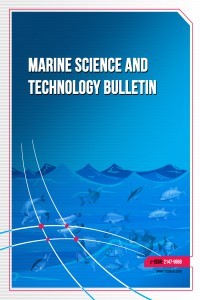
Marine Science and Technology Bulletin
Yazarlar: Evren KOBAN BAŞTANLAR
Konular:Deniz ve Tatlı Su Biyolojisi
DOI:10.33714/masteb.582223
Anahtar Kelimeler:DNA barcoding,COI,Fish fillet,Mislabelling,Species substitution
Özet: A number of studies have shown that mislabelling and species substitutions in fish products are very common worldwide. This fraud has two major aspects: economics and health. Moreover, poor trading, and neglecting the species conservation status are growing threats for fish stocks. First the type and extend of this fraud in fish must be detected in order to take proper actions. As some markers (e.g. protein analysis and morphological features) can fail, DNA markers, especially sequencing of cytochrome oxidase I gene (or DNA barcoding), is becoming a more widely preferred methodology for species identification. In this study, DNA barcoding technique was employed to confirm the species names written on the product packages of fish fillets purchased from the market. The fillets were labeled as Nile tilapia (Oreochromis niloticus). Among the 15 fillet samples analyzed, only 4 of them were labeled correctly. Seven (47%) of them were found to originate from pangasius (Pangasianodon hypophthalmus) and three of them were found to originate from a different tilapia species (Oreochromis mossambicus). This paper revealed a significant mislabelling of frozen fish fillets in Turkey. Customers are making informed decisions based on many reasons (like health issues or palate) and they have the right to eat what they think they are paying for. The results indicate the necessity for taking immediate actions and regulations against fraud in food items to sustain food quality and safety.